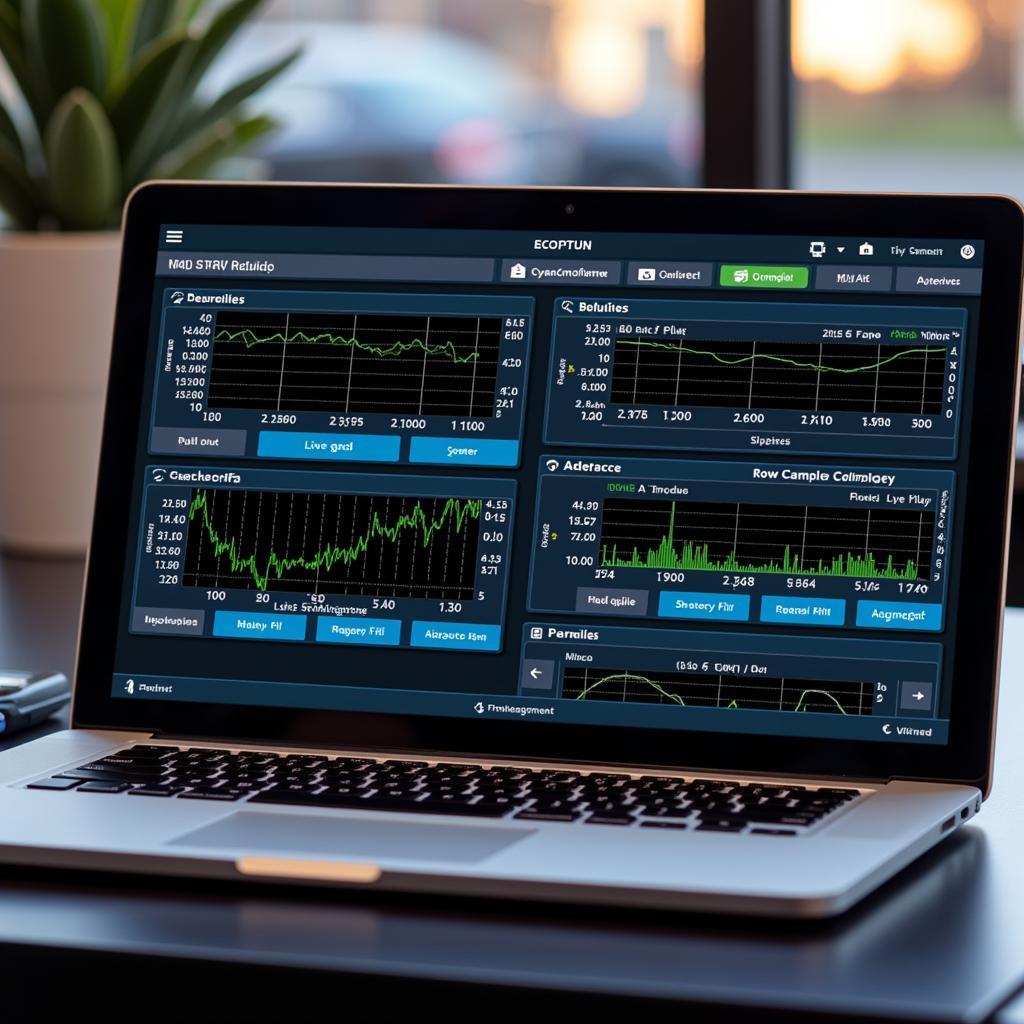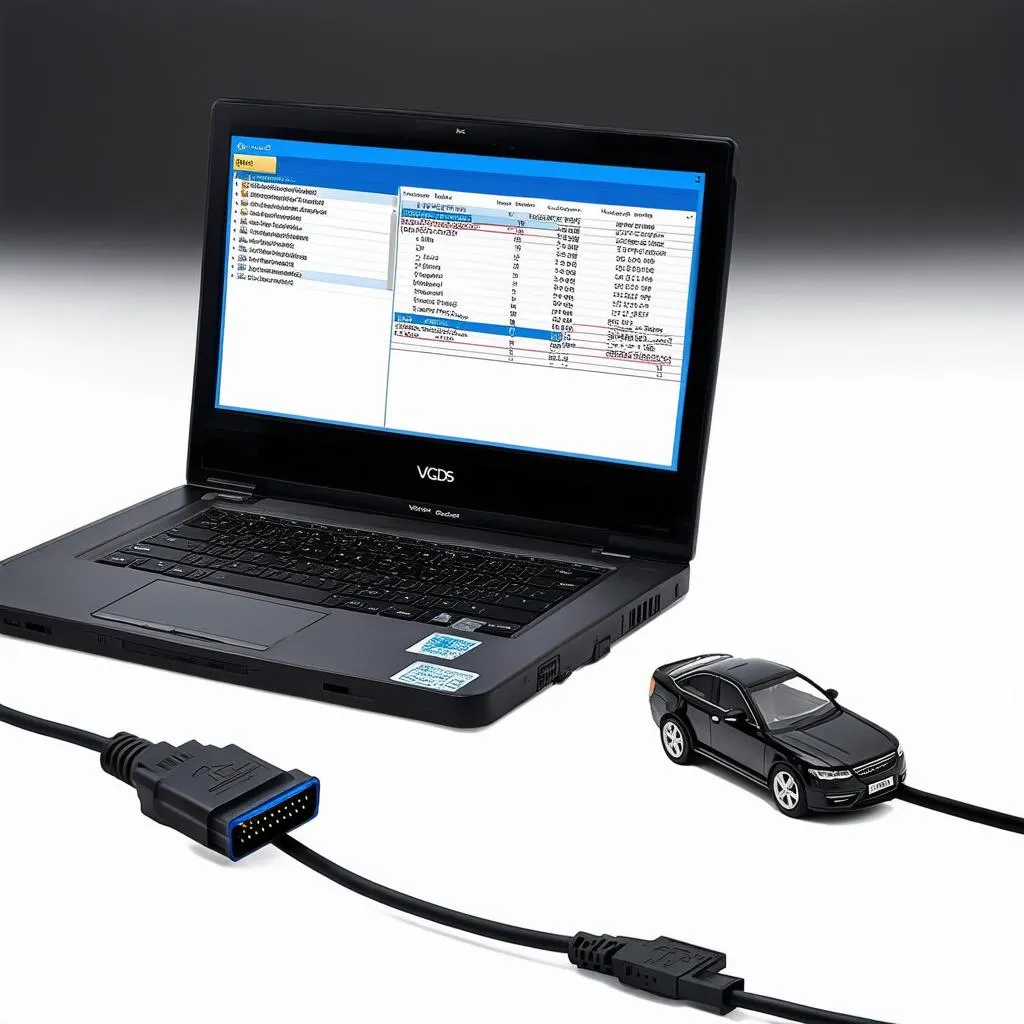Understanding VW VCDS codes is crucial for effective vehicle diagnostics and repair. Whether you’re a car owner, a mechanic, or an automotive enthusiast, this guide will provide valuable insights into interpreting these codes and resolving underlying issues.
VCDS, or Vag-Com Diagnostic System, is a powerful software tool that allows you to access the various control modules within your Volkswagen vehicle. These modules control everything from the engine and transmission to the airbags and lighting systems. When a problem occurs, the module stores a diagnostic trouble code (DTC), commonly known as a VCDS code. These codes are essential for pinpointing the root cause of vehicle malfunctions.
What are VW VCDS Codes?
VW VCDS codes are five-digit alphanumeric codes that follow a specific format. The first character indicates the system involved (e.g., P for Powertrain, B for Body, C for Chassis, U for Network). The next two digits represent the subsystem, and the final two digits specify the specific fault. For example, a code like P0301 indicates a misfire in cylinder 1.
How to Read and Interpret VW VCDS Codes
Interpreting VW VCDS codes accurately requires a systematic approach. First, identify the code using a VCDS scanner. Then, consult a reliable database or online resource to understand the code’s meaning. Be aware that some codes can have multiple interpretations depending on the specific vehicle model and year. Cross-referencing the code with the vehicle’s service manual is highly recommended. For specific models like the Passat, check out our guide on vw passat vcds codes.
Common VW VCDS Codes and Their Meanings
Several VW VCDS codes appear frequently across different models. Some common examples include:
- P0420: Catalyst System Efficiency Below Threshold (Bank 1)
- P0171: System Too Lean (Bank 1)
- P0300: Random/Multiple Cylinder Misfire Detected
- U0101: Lost Communication with Transmission Control Module
Understanding these common codes can save you time and money in the diagnostic process. Similar resources are available for other VW models, like the vw t5 vcds codes guide.
Using VCDS for Advanced Diagnostics
Beyond simply reading codes, VCDS offers advanced diagnostic capabilities. You can use it to perform output tests, monitor live data streams, and even make coding changes to various modules. This level of control allows for precise diagnostics and targeted repairs. You can also download the software from our vcds download page.
 VW VCDS Software Displaying Advanced Diagnostics on a Laptop
VW VCDS Software Displaying Advanced Diagnostics on a Laptop
Troubleshooting VW VCDS Codes
When troubleshooting, start by addressing the most likely causes based on the code’s meaning. For instance, a P0420 code often points to a faulty catalytic converter. However, it’s essential to rule out other potential issues, such as oxygen sensor problems or exhaust leaks. A systematic diagnostic approach, coupled with a thorough understanding of the vehicle’s systems, is key to efficient troubleshooting. For Tiguan owners, we have compiled a list of common codes in our vw tiguan 5n vcds codes article.
Tips for Effective VCDS Code Diagnosis
- Always clear codes after repairs and retest to confirm the fix.
- Consider using freeze frame data to understand the conditions when the code was set.
- Consult reputable online forums and communities for additional insights and support. Specific model information, like vw golf vcds, is available online.
“Accurate VCDS code interpretation is fundamental to efficient vehicle diagnostics. Don’t underestimate the power of this tool in resolving complex automotive issues,” says John Miller, Senior Automotive Diagnostic Technician at CARDIAGTECH.
Another expert, Sarah Johnson, Lead Software Engineer at CARDIAGTECH adds, “VCDS provides a window into the inner workings of your Volkswagen. Leveraging its capabilities can significantly improve your troubleshooting process.”
In conclusion, understanding and utilizing VW VCDS codes effectively is crucial for anyone working on Volkswagen vehicles. By following the guidelines outlined in this comprehensive guide, you can confidently diagnose and resolve a wide range of automotive problems.
Need assistance? Contact us via WhatsApp: +1 (641) 206-8880, Email: CARDIAGTECH[email protected], or visit us at 276 Reock St, City of Orange, NJ 07050, United States. Our customer support team is available 24/7.

